Taiwan's Public-Area Furniture Makers Remain Strong and Flexible
Ample supply of high-end parts and skilled workers makes Taiwan a good place to produce quality outdoor and public-area furniture
2013/09/09 | By Judy LiTaiwan's furniture makers have been moving offshore in droves over the past two decades, but some of them have managed to stay on the island and use their strong manufacturing capability and flexibility to compete in the international arena.
Those that have kept their roots in Taiwan have worked very hard to upgrade their manufacturing skills and roll out the high-end products that keep them viable in the global market. Some of them note that Taiwan is still a good place to produce high-end outdoor and public-area furniture thanks to its ample supply of high-end parts and skilled workers.
Industry experts say that the manufacturing technology used to make public-area furniture is somewhat different from that used with home furniture, since the former requires more sophisticated manufacturing skills and equipment to guarantee absolute safety in public areas.
Today no more than 10 manufacturers in Taiwan are involved in the production of outdoor and open-commercial-area furniture, but this small group is professional, skillful, and highly competitive.
Ho Shuan Enterprise Co., Ltd., established in 1986 in Taichung County, central Taiwan, is a dynamic furniture maker which initially processed metal tubes and plates for local users and then gradually diversified into the production of finished furniture items.
After years of effort, Ho Shuan has developed into one of the leading furniture makers in Taiwan. Among its major products are RTA work stations (PC desks), study carrels, TV stands and cabinets, K/D desks & related units, roller shutters, bathroom furniture, school furniture, and more.
In recent years the company has laid increasing emphasis on public-area and school furniture. “We turn out school furniture mainly on an OEM basis for clients who have won U.S. government bids to provide furniture for educational institutions including kindergartens, elementary schools, and high schools,” says Eric Weng, the company's sales manager.
A Family Business
“I started to work at my father's furniture company about five years ago when I finished my overseas study in the United States,” Weng adds. “My elder brother also went to the U.S. for study and came back to Taiwan about three years earlier than me. Now, we both work for our father.”
To achieve integrated manufacturing without heavy investment, Ho Shuan works with other local producers. Its own workforce of about 30 persons handles R&D, quality control, key manufacturing processes, and packaging.
Weng notes that the company uses locally-supplied metals and imported eco-friendly, high-end plastic materials to turn out school furniture items including desks, bookshelves, multimedia tool cabinets, computer storage devices, and platforms.
“Having structural design expertise coupled with molding skills is essential to competing with rivals,” Weng stresses. “Our molding skills assure not only fully-realized structural design, but also production efficiency and flexibility. And we see fewer competitors in this area, because government projects carry higher standards than consumers usually do.”
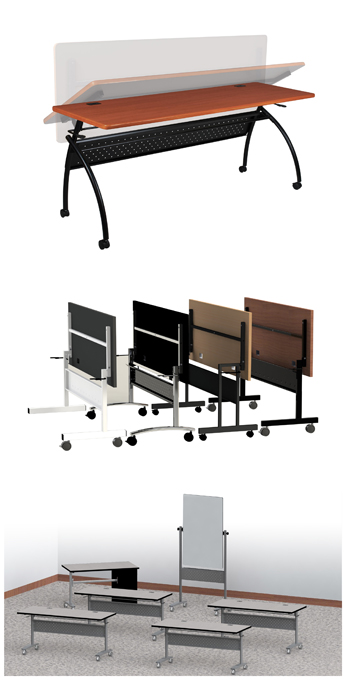
Ho Shuan has kept all of its operations in Taiwan and has gradually reduced its labor force by using computers, machines, and robots. “Our labor force has been downsized by about a third in recent years,” Weng reports. “And before, we had to spend at least six months to a year to finalize the design of furniture items for a single project, but now we've slashed the time to only one or two months.”
The company has recently engaged in the vigorous promotion of its foldable tables, which are easy to assemble and save space. The tables are also wheeled so that they can be easily moved to any place in a room, making them suitable for use in conference rooms and classrooms.
Today Ho Shuan offers more than 130 furniture items and ships an average of 16 TEU containers a month. All of the products are exported to the U.S., which absorbs 80% of the total, and Australia, which takes the remaining 20%.
In response to rising market demand, Ho Shuan intends to find overseas agents to help build up marketing channels globally.
Integrated Operation
Founded in 1992 in Tainan, southern Taiwan, Gauss Furniture makes mostly public-area furniture. It initially provided only designing and planning for special public-area furniture projects, and later on developed into an integrated manufacturer with services that include designing, manufacturing, sales, and maintenance.
Gauss specializes in public seating for auditoriums, theaters, cinemas, concert halls, hospitals, airports, school stadiums, and other public areas. “The company started up by supplying students' desks and chairs, and then expanded its production lines to include outdoor and public furniture for auditoriums, theaters, stadiums, etc.,” reports the company's sales manager, Douglas Yen.
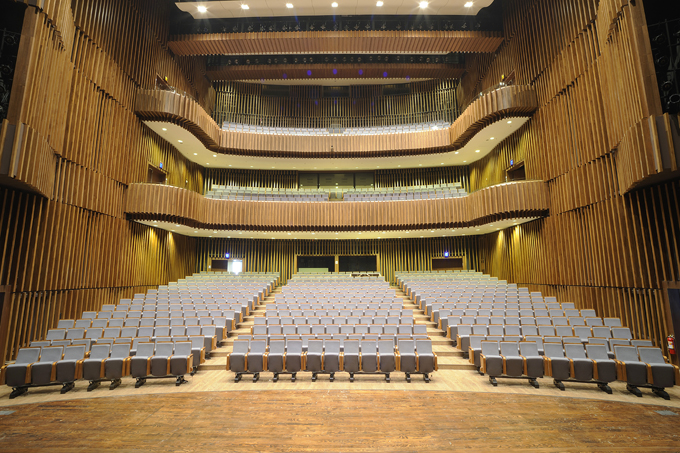
“Generally,” he goes on, “our products are targeted at the domestic market. We have won bids tendered by many domestic educational institutions, government units, and even religious groups. Among them are National Taiwan University, Hong Kong Chinese University, Kaohsiung Xiaogang Music Hall, Taichung City Hall, and Buddha Memorial Hall.”
To meet growing market demand and lower manufacturing costs, Gauss established a subsidiary in Shanghai in 1998. However, it still has five plants in southern Taiwan that handle design, manufacturing of high-end products, marketing, and financial planning. To provide more flexibility for its products, the company cooperates with more than 100 local plants that supply a variety of metal parts, accessories, upholstery, and other items.
Gauss obtained ISO 9001 and ISO 14001 certification in the early 2000s. It moved its Chinese production base from Shanghai to Kunshan in Jiangsu Province after the completion of a new plant there. “Our operations in Taiwan focus on both the Taiwan and overseas markets; while our base in China concentrates on the huge Chinese market,” Yen reports.
“We started to export our products about 10 years ago,” he continues. “In the beginning our export ratio was only 10%; in recent years the ratio has doubled to 20%, and we believe it will very likely grow to 30% in the coming year.” Today Gauss aims its exports at markets in Southeast Asia, including Singapore, Malaysia, and Hong Kong. The Middle East will be its next overseas target.
To further explore overseas markets, the company has participated in leading international furniture shows in recent years, including the Orgatec Cologne Exhibition, China International Furniture Expo, and Malaysia International Furniture Fair. Notably, the company won the Furniture Excellence Award at the 2012 Malaysia International Furniture Fair.
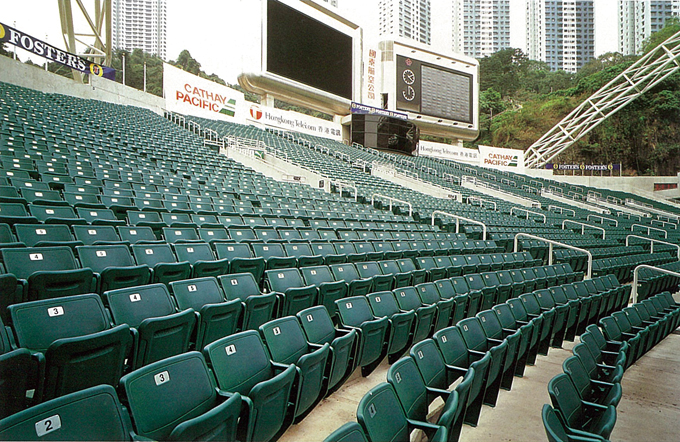
Leading Producer
With a history of about 15 years, Techpros International Co., Ltd. has developed into Taiwan's leading public-area furniture maker, turning out products that include office conference chairs and waiting lounge chairs and offering OEM/ODM services for theaters, concerts, cultural halls, stadiums, and schools.
“Our company was founded in 1999 shortly after we won a contract from Kotobuki, Japan's major supplier of furniture for public spaces,” states Y. T. Lee, president of Techpros. “In 1999 Japan was chosen to host the 2002 World Cup; it planned to build 10 stadiums in the following couple of years exclusively for the event; and Kotobuki won the bid to provide seating for the stadiums. Luckily, Techpros was then chosen to be its major contractor for the big project, and from then on we have been deeply involved in the public-area furniture sector.”
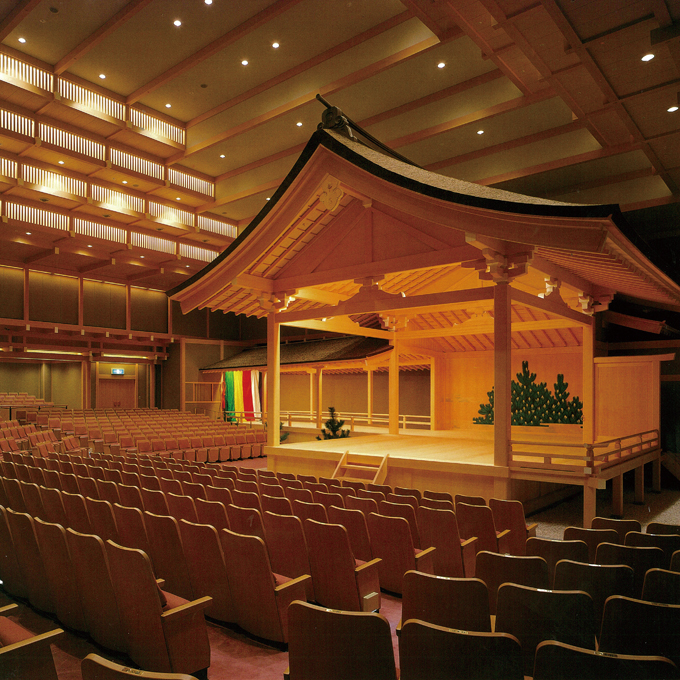
“I have a very deep relationship with Japan, since I once studied there for five years and worked at a Japanese company in Taiwan for 15 years after returning home. I am quite familiar with Japan's market, culture, and local conditions and customs, so I felt comfortable cooperating with Kotobuki. Today Techpros is Kotobuki's sole Taiwanese partner.”
Techpros has all of its operations in Taiwan, with three plants in the north of the island. “We carry out integrated manufacturing, from lumber cutting and board bending to planking, metal pressing, upholstering, sewing, assembling, and packaging,” Lee notes. “Our advanced facilities and machines are able to process both wood, which we import from Russia, Germany, and China, and metal materials, which are supplied locally.”
“We now have a workforce of nearly 200 and our plants are equipped with advanced automatic machinery including high pressure molds, high frequency induction hardening machines, metal cutters, CNC machines, punching machines, sewing machines, and robot arms. In addition to processes carried out at our own plants, we also contract with about 400-500 local suppliers of metal parts and related accessories,” Lee says.
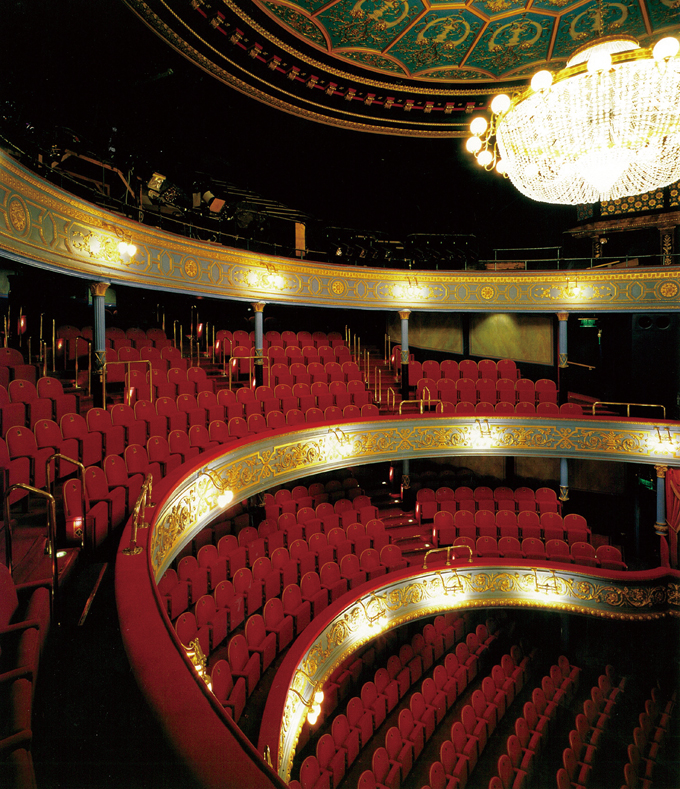
“Compared with home furniture, public-area furniture needs to meet higher standards of safety and durability. We have a strong design team that can develop products to meet customer's special requirements, and our customers can choose the materials they need. Our products have JIS and SGS approval, and they also meet other strict international standards,” Lee continues.
Due to its cooperation with Kotobuki Techpros ships most of its products to Japan, but it also supplies markets in the United States, Europe, and Southeast Asia, including Singapore, Malaysia and Brunei. “Today we provide public-area furniture to about 80% of the world's stadiums and 60% of Japan's theaters,” Lee claims. “In addition, we control a 90% share of the roll-back market in Japan; in the United States and Europe, our share is 50%.”




